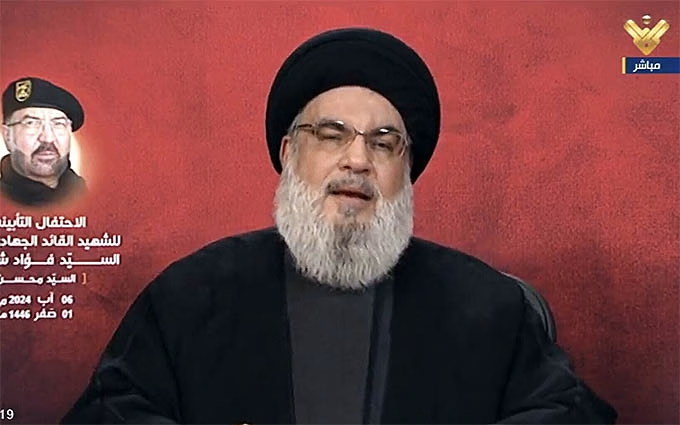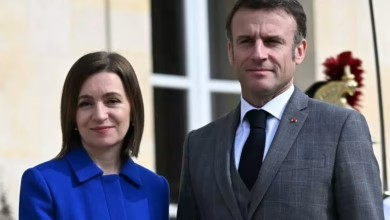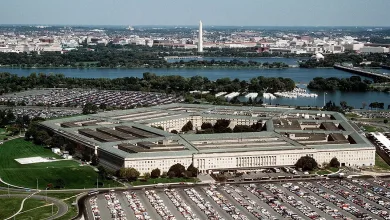Hezbollah leader Hassan Nasrallah addressed the public for the first time since a series of devastating attacks across Lebanon, asserting that Israel had crossed all “red lines.” His speech, delivered amid escalating tensions, was highly anticipated following recent events that left dozens dead due to attacks on communication devices. Nasrallah emphasized that these actions could be interpreted as “a declaration of war,” highlighting the seriousness of the situation.
However, his address was abruptly interrupted by sonic booms from low-flying Israeli jets that roared across the Lebanese capital, Beirut. The disruptive sounds underscored the ongoing military tensions in the region and seemed to amplify the urgency of Nasrallah’s message. Just moments before he began speaking, the Israel Defense Forces (IDF) confirmed that they had targeted a series of Hezbollah positions in southern Lebanon, further escalating the conflict.
During his speech, Nasrallah condemned the remote-controlled detonation of communication devices, calling it a “massacre.” He detailed how these explosions took place in civilian areas, including hospitals, pharmacies, markets, and residential neighborhoods, where many innocent bystanders, including women and children, were present. His graphic description aimed to illustrate the human cost of the recent military actions and to rally support among his followers.
Nasrallah’s remarks reflected a deep sense of anger and resolve. He asserted that the impact of the attacks had not only physical but also psychological repercussions on the Lebanese population. By framing the events as part of a broader struggle against Israeli aggression, he sought to strengthen Hezbollah’s position in the eyes of its supporters and reinforce its role as a defender of Lebanon.
The Hezbollah leader also expressed hope that an Israeli invasion of southern Lebanon could create a “historic opportunity” for the militant group. He suggested that such a move would enable Hezbollah to respond more decisively and possibly turn the tide in its favor. This statement hinted at a willingness to escalate the conflict further if provoked, emphasizing a readiness to confront Israeli forces directly.
In his closing remarks, Nasrallah promised that the “enemy will face a severe and fair punishment from where they expect and don’t expect.” This declaration not only served as a warning to Israel but also aimed to boost the morale of his supporters, many of whom view Hezbollah as a bulwark against external threats. His rhetoric reflects the ongoing struggle for power and influence in a region marked by conflict and instability.
The backdrop of Nasrallah’s speech and the sonic booms from Israeli jets underscore the precarious situation in Lebanon and the broader Middle East. As tensions continue to rise, the potential for further violence looms large, making the calls for restraint and dialogue increasingly urgent. The interplay of military actions and political rhetoric will likely shape the coming days and weeks in this volatile landscape.


